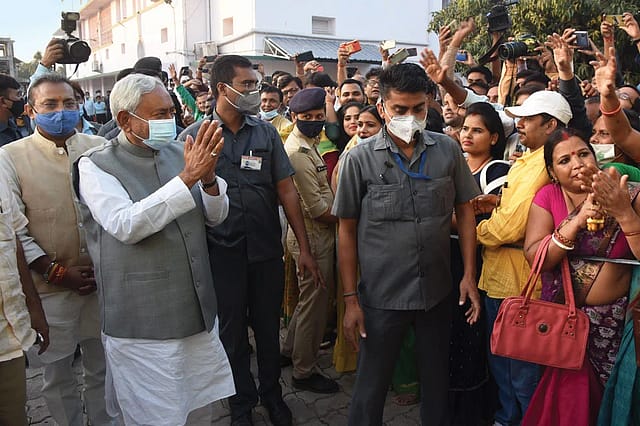The Beneficiary Network

THERE IS AN ongoing debate on the relevance of welfare schemes for marginal communities, women and other vulnerable groups and the relationship of such welfare with Indian democracy. It’s a pertinent debate given that all political parties are either delivering or promising to deliver schemes like free rations, pension, etc as monthly or annual financial support. The Bihar Assembly election is witnessing a similar trend where both NDA and I.N.D.I.A. are competing on the promise of welfare.
The question being asked is whether such welfare is merely a politics of gifts based on distribution of freebies or if it is going to strengthen Indian democracy. Do such benefits make marginal people upwardly mobile? The middle and upper classes are often critical of these schemes, seeing them as misuse of taxpayers’ money. In media discussions on Assembly and parliamentary elections, such schemes are usually interpreted as the cause of victory or defeat without any socio-political context.
‘Beneficiary’ is a widely debated term. It means communities getting help to come out of marginalisation. These poor communities need capacity to aspire so as to emerge as active agents in India’s development. Such capacity-building needs a minimum socio-economic status. Support in terms of food, water, healthcare, education, pension, etc provides them with a sustainable and dignified survival with possibilities and future mobility. In BJP’s 11 years in power, a big group of beneficiaries has emerged. But unlike other parties creating their beneficiaries, BJP has produced a long-term vision for sustainable mobility and developmental aspiration. This has led to a redefinition of political inclusion through economic redistribution, shaping a new model of neoliberal governance. This is not a retreat from the welfare state but its reinvention by means of targeted schemes managed by digital infrastructure and data-driven delivery.
Openomics 2026: Continuity and Conviction
06 Feb 2026 - Vol 04 | Issue 57
The performance state at its peak
Congress used to provide state benefits wherever it was in power but it didn’t follow up and work with its beneficiaries to understand their changing desires. Unlike Congress and other parties that failed to forge long-term relationships with recipients of welfare, BJP transformed them into communities which acquired a beneficiary consciousness. This consciousness may be transitory but the BJP government understands that reality and tries to respond to the changing desires of marginals. Because this policy works beyond caste and creed, guided only by the communities’ developmental aspirations, it has ruptured the traditional caste-based mobilisation as seen in BJP’s support base during elections across India. This vision integrates inclusive governance, economic mobility and national unity with future development.
Prime Minister Narendra Modi proposed the poor as a category whose mobility and empowerment are key to Indian democracy. That’s why, after 2014, a large chunk of government policy has targeted this category. It was seen that beneficiary-focused schemes contribute significantly to poverty reduction by providing direct support to marginalised groups. Targeted social assistance reduces income disparities and fosters social inclusion. Targeted programmes have improved the living standards of the poor by facilitating access to food, healthcare, and education.
In time, the lower middle class, farmers and labourers also emerged as beneficiary groups while women, transgenders, nomadic communities, Dalits and tribals all became central to the network of beneficiaries built by the state for inclusive development.
Therefore, while welfare schemes may be called freebies when used for immediate and unplanned political mobilisation, they can turn into effective instruments for deepening democracy when deployed in a programme of long-term transformation. In the end, it makes democracy ethical, sensitive and inclusive.
